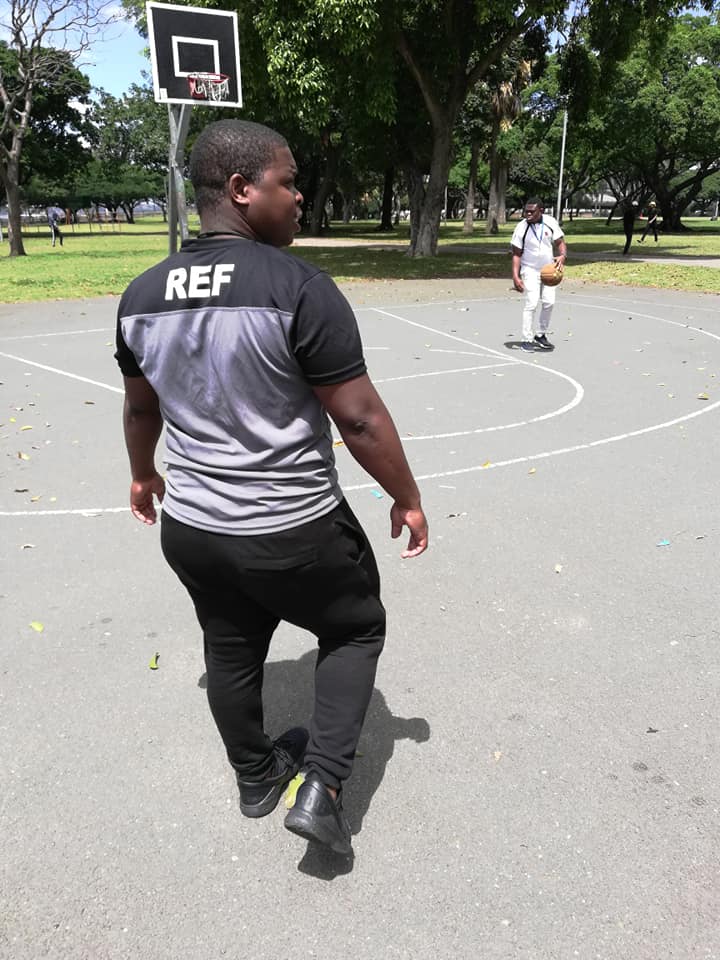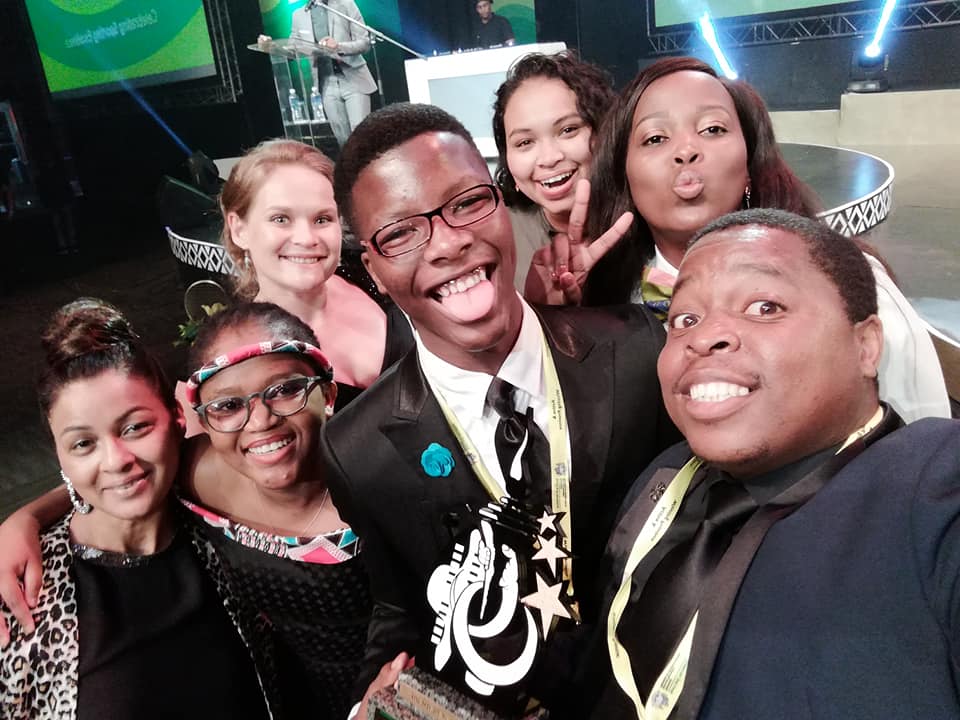Teach the Teacher
Thobani Khumalo
July 31, 2023
SHARE
Thobani Khumalo, also known as “Panda,” started playing basketball consistently in 2004 after his older brother introduced him to a team in Montclair that was a part of the Playing for Peace program. He would take about an hour’s walk from his township, Lamontville, to Montclair to play a game that eventually opened up many doors for him within and outside the basketball court lines. Thobani describes his experience in Lamontville before Playing for Peace as a “confined” environment. So, the exposure to places like Montclair and eventually the likes of Molweni was refreshing for him. Playing for Peace soon started programs in his hometown of
Lamontville in 2006.
Once his playing days concluded, Thobani knew he wanted to remain a part of the organization and make an impact. So, he started coaching in 2007. Later, he moved on to numerous roles, including Area Coordinator, Monitoring and Evaluation Coordinator, and Life Skills Coordinator, to name a few. Once more involved in the curriculum development side, he entered into a rhythmic facilitation style of delivery, which impacted so many participants and his peers. As Thobani reflects on the core of his time in the field with PeacePlayers participants, he thinks of a few memorable moments and realizations:
- SNAKE PIT IN SHONGWENI
Shongweni is a popular location for staff and participant retreats. At Shongweni, there is an obstacle course that includes a team-building activity called the snake pit. The snake pit is a dark dungeon-like, underground maze where teammates crawl on their knees and elbows to navigate their way through to the other side.

Thobani remembers Ntobeko being on his team and right in front of him as he followed him to get through the course. It was in the snake pit where Thobani found out he was claustrophobic. At some point, he felt unable to breathe fully. “The snake pit was only two meters long, but it felt like an hour,” says Thobani. By this time, Thobani had lost track of Ntobeko and didn’t know where to go.
A participant came behind him a few seconds later and grabbed his leg. The participant then says, “keep moving, coach, follow me.” Thobani admitted that the young participant “sounded like he had it under control, so I kept it moving and followed him.”
After reflecting on the situation, Thobani realized that a participant “pushed me and encouraged me to keep going forward.” Thobani usually played the role of the encourager and guiding force at this stage in his career. This situation presented the opportunity for a participant to do the exact same thing for him. Someone younger than him pushed him past an uncertain situation and helped him persevere.

- WATCHING THEM GROW
Growing up in Lamontville, Thobani saw the temptations, especially for the youth he worked with. Since he came from that community he understood the environment from the participants’ perspective. Thobani recollects trying to “protect them from the things I saw growing up.” Although he couldn’t save participants from everything, he tried when he could.
Thobani remembers everything from picking participants up from parties they had no business attending to seeing them in school uniform, confused about why they didn’t come to practice. At any given point, he’d ask, “Why didn’t you come to the practice?” If the answer wasn’t up to par, Coach Thobani demanded 10 pushups from the participant. For Thobani, it was about holding them accountable and ensuring they were engaged in productive activities for their development.
Today, it brings him joy that he sees himself in some of the participants he once coached and that they ask for advice as they immerse themselves in their own coaching journeys. Young coaches like Nududuzo Sosibo and Ntsiko Luthuli come up to him and ask, “Coach, I’m stuck here. How can I improve on this? What would your thought process be in this situation?”
“I watch so many kids grow from primary school to high school, and then I end up officiating them in college,” says Thobani. Although Thobani isn’t a staff member of the organization today, he’s still into developing young people to see the power in themselves. These were just a few moments for Thobani that helped him understand that his work was more significant than just being a coach. He was a big brother, mentor, and teacher.





